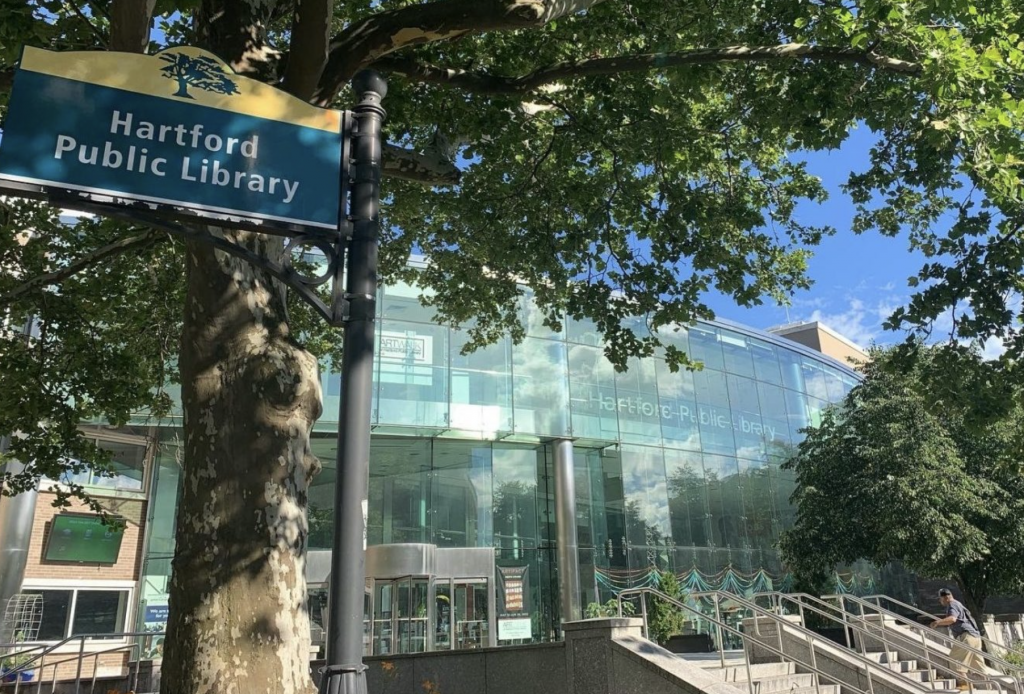HARTFORD—Over the next two years, the Connecticut State Library (CSL) will design and apply a replicable system that shares digital navigation services to underserved communities across the state.
The Institute of Museum and Library Services (IMLS) has awarded the CSL’s Division of Library Development a National Leadership Grant of almost $250,000 to run this initiative that will be largely executed in the next year.
Eight public libraries will be collaborating in this effort—including the Bridgeport Public Library, Derby Public Library, Hamden Public Library, Howard Whittemore Memorial Library, Naugatuck, New Haven Free Public Library, Wallingford Public Library, West Haven Public Library, and Woodbridge Town Library.
The National Leadership Grant for Libraries Program looks to support a variety of projects, including those that strengthen library services to address the critical needs of its surrounding communities, according to the IMLS website.
The State Library of Connecticut’s Regional Navigator Sharing Plan includes distributing 400 computers and assisting 2,000 residents in need through the eight libraries collaborating in this initiative, along with creating a toolkit that supports other regions to recreate similar collaborative programs.
This plan focused on digital inclusion builds on the CSL’s ARPA-funded Digital Navigator Pilot Program that ran in several districts.
“Connecticut libraries are increasingly playing a role in the effort to close the digital divide,” said CSL’s Digital Inclusion Consultant Chris Gauvreau, who led the Digital Navigator Pilot. “This project is designed to develop a regional sharing model that will help small and rural libraries contribute without strain.”
SUGGESTION: CT Public Library Initiative Seeks To Close Local Digital Divide

In recent years, Connecticut Libraries have led efforts to address the ongoing digital divide across Connecticut, which largely impacts communities of color and other underserved residents including low-income households, senior citizens, and individuals with disabilities.
“We are proud to continue the work started with the Digital Navigator Pilot,” said State Librarian Deborah Schander. “Thanks to IMLS, we can continue to close the digital divide, both here in Connecticut and across the country.”
The 2020 Digital Divide In Connecticut Report found that about 35 percent of Latino residents and 31 percent of Black residents lacked wireline broadband internet at home, while 36 percent of Latino residents and 31 percent of Black residents did not have computer access at home.
“Libraries are at the forefront of the work closing the digital divide and ending information poverty for our most vulnerable citizens,” said Director Dawn La Valle of the CT State Library’s Division of Library Development. “Recognized as a leader in developing programs to address digital equity, CSL’s model project, will inform the rest of the country and provide a turnkey solution for teaching digital literacy skills.”
Publisher’s Notes: CTLN produces stories on the state’s ongoing digital divide to raise awareness on this equity issue that disproportionately impacts historically underserved communities. CTLN is a proud partner of the Connecticut State Public Libraries in serving Connecticut’s diverse Hispanic/Latino communities.




